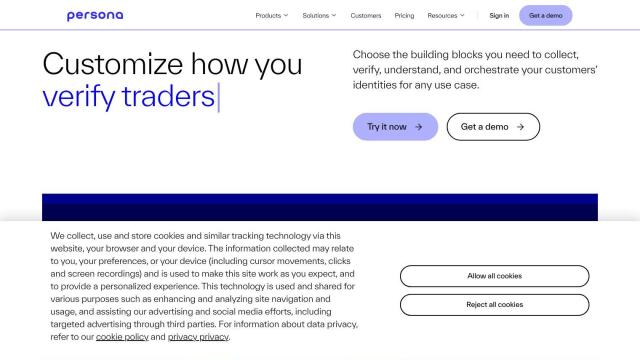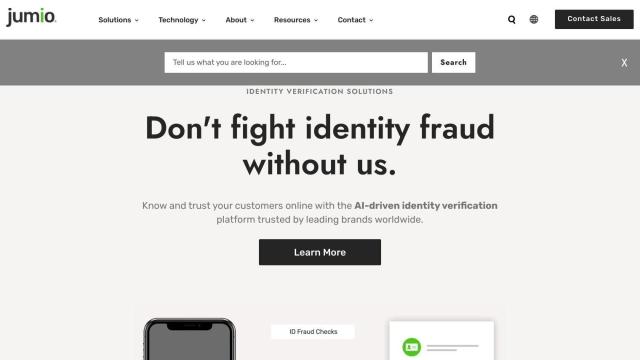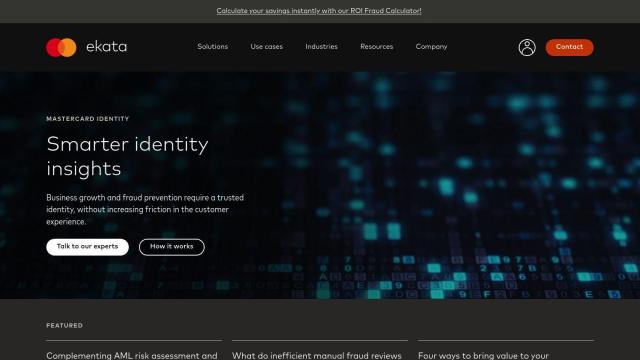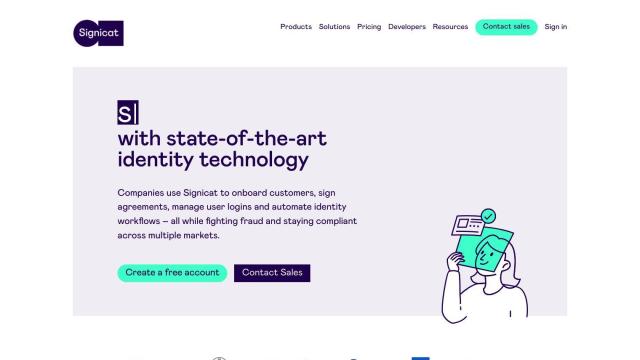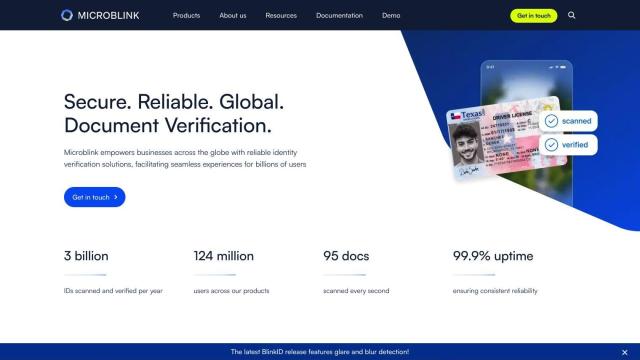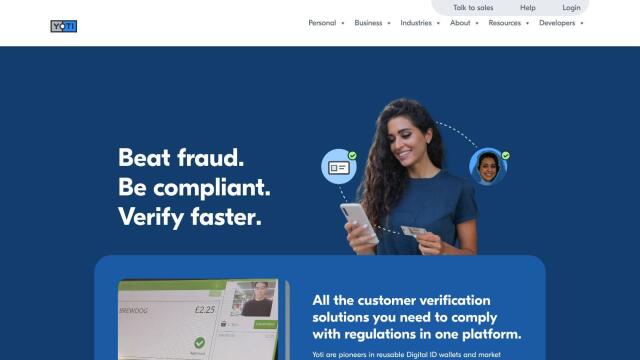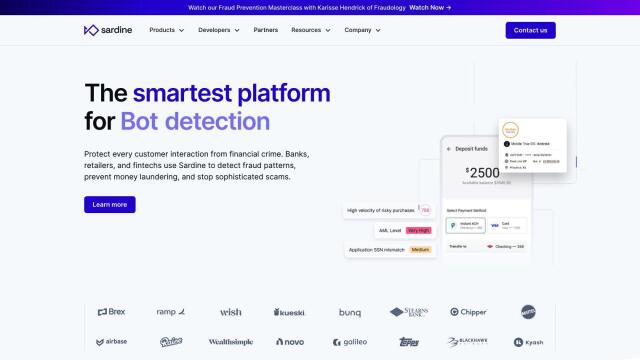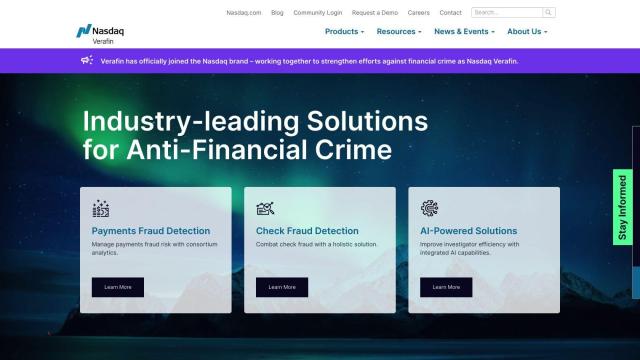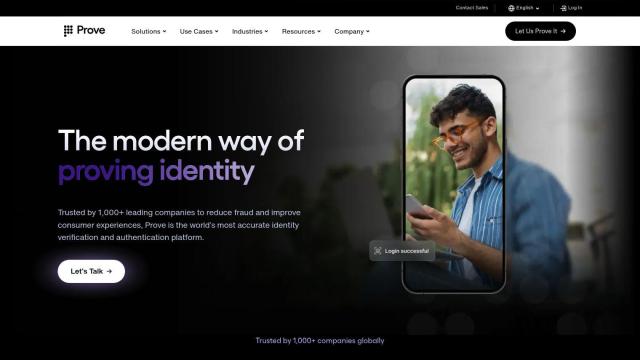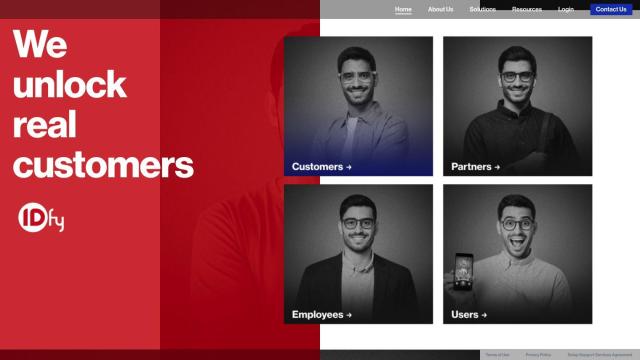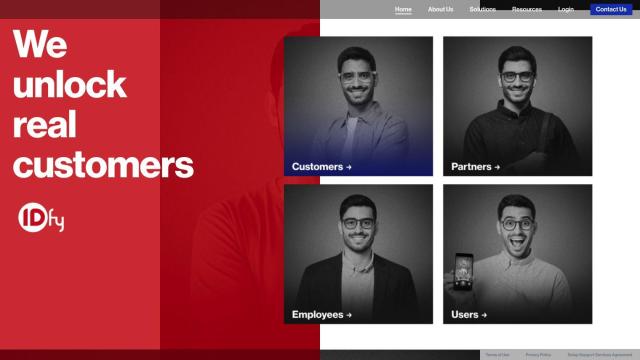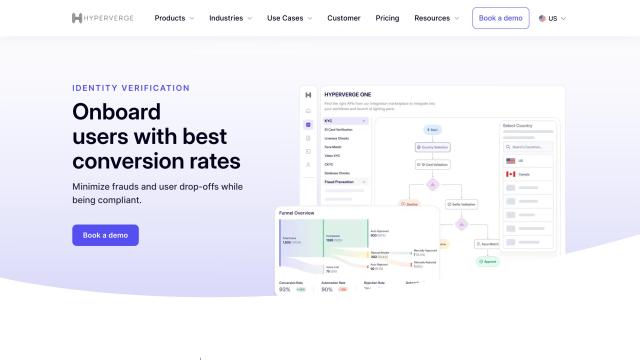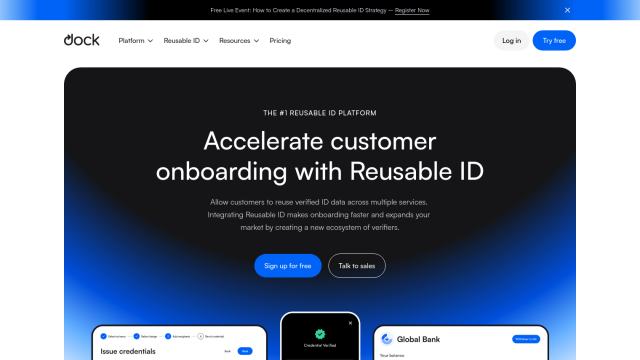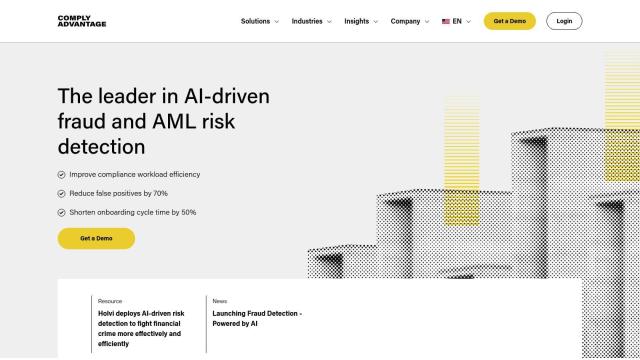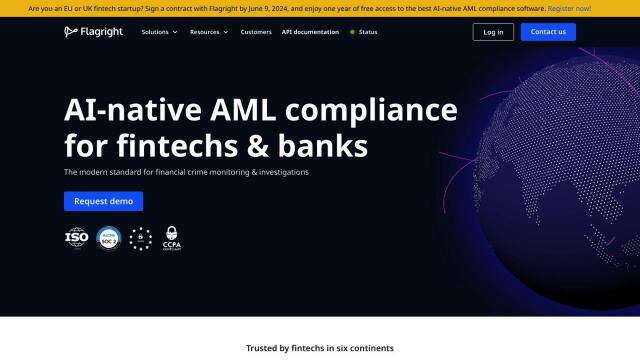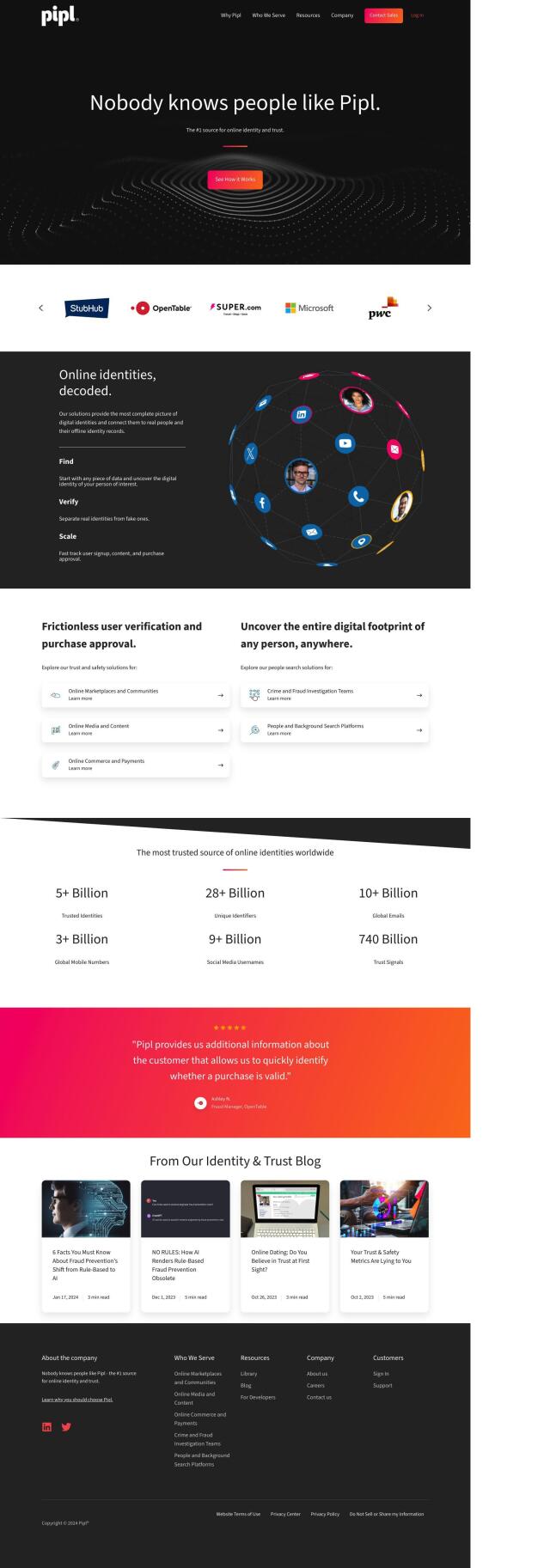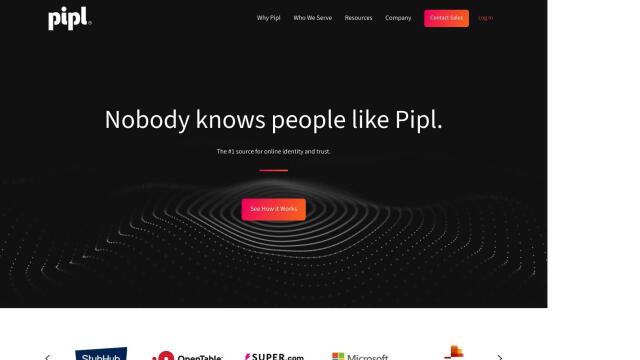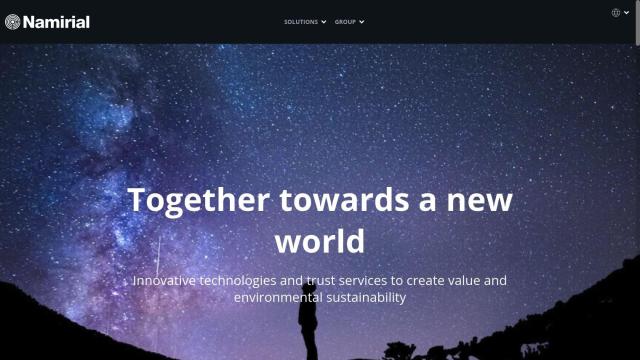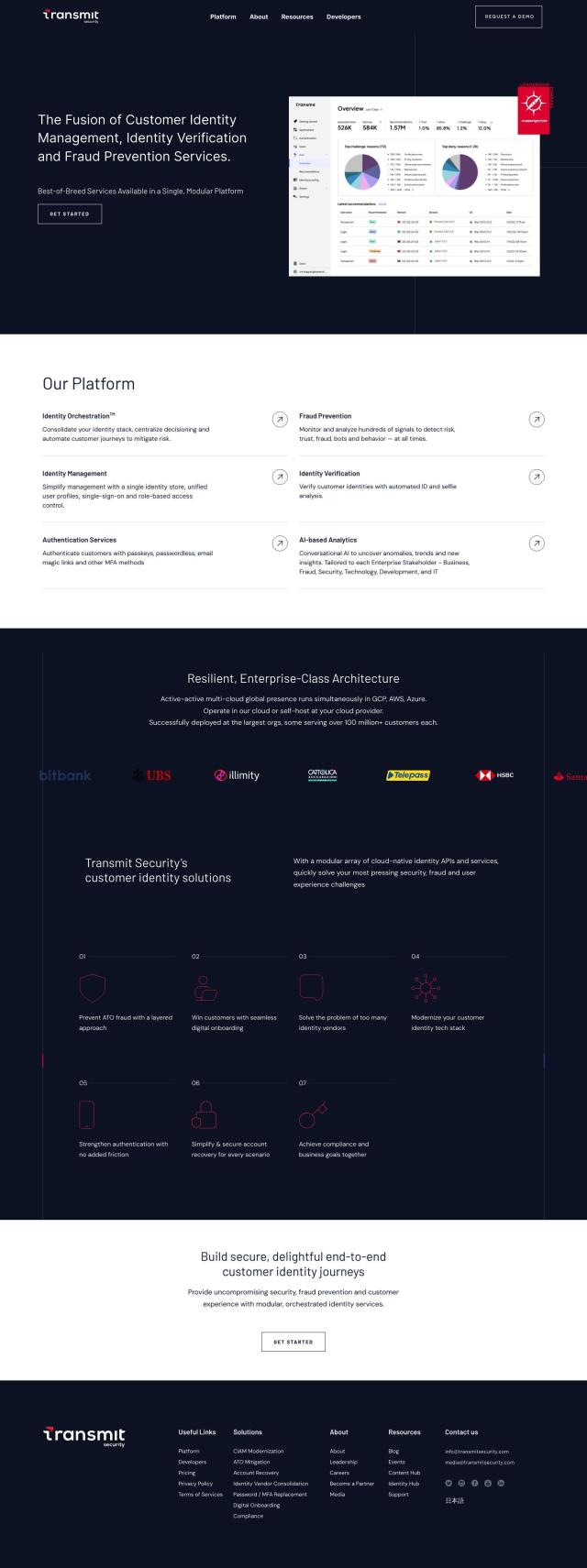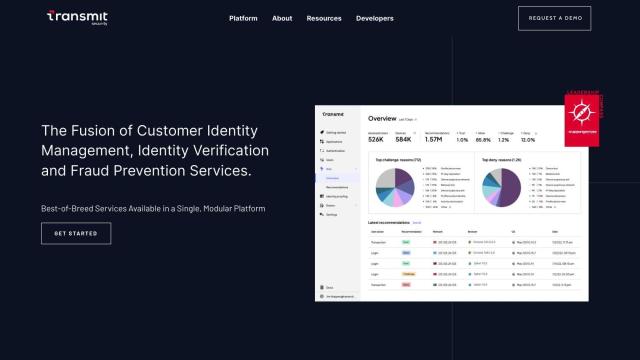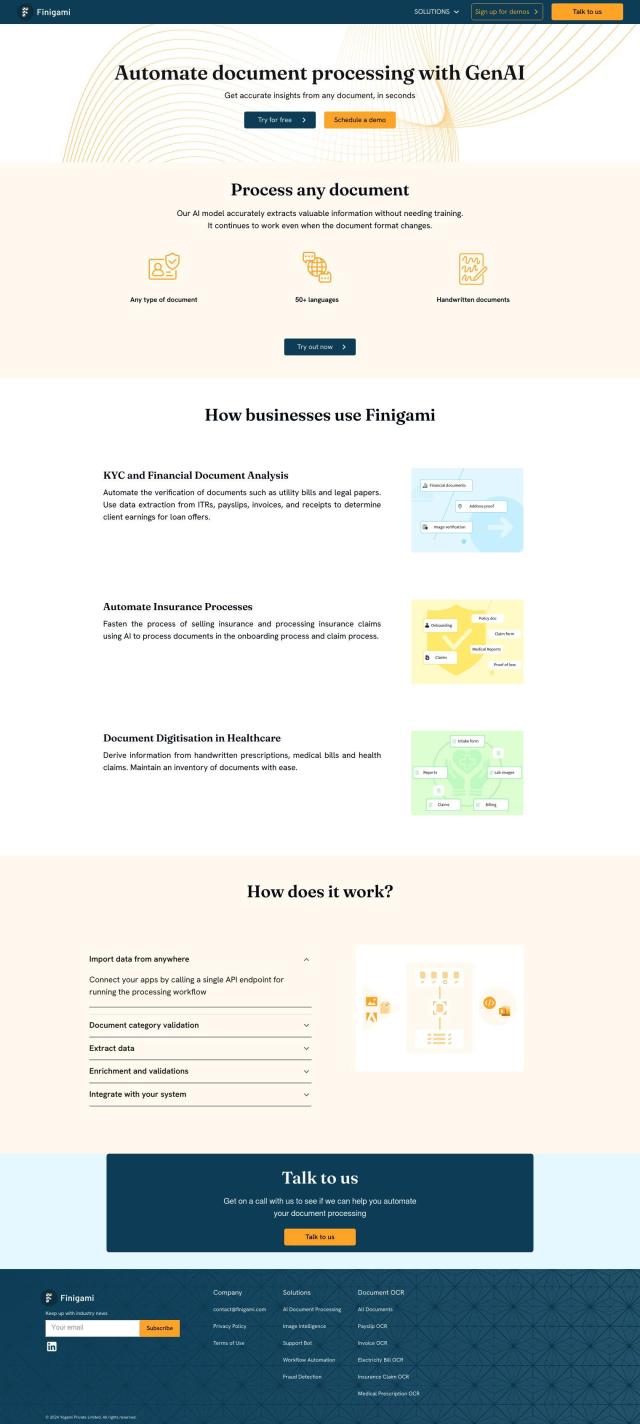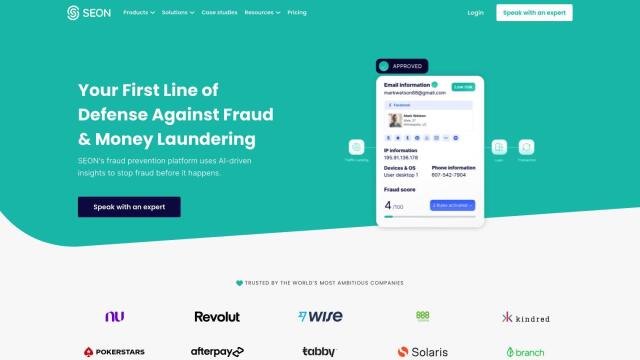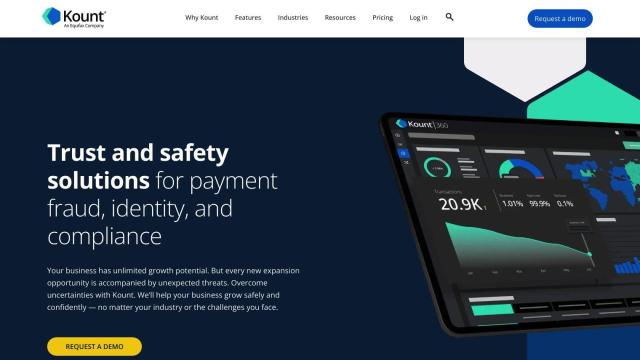Question: Is there a system that can help me streamline know-your-customer (KYC) and know-your-business (KYB) operations for my fintech company?

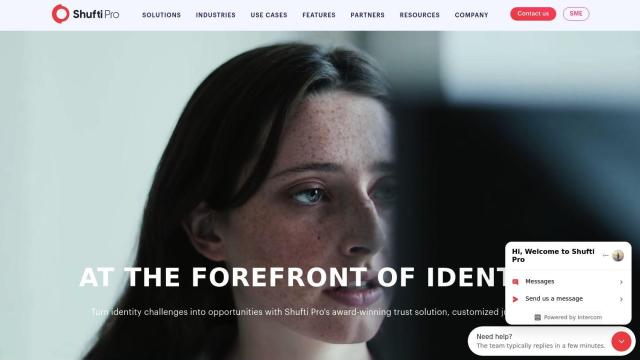
Shufti Pro
If you're trying to simplify your fintech company's know-your-customer (KYC) and know-your-business (KYB) processes, Shufti Pro is worth a look. The company offers a range of identity verification tools, including face verification, document verification and address verification. It also offers video KYC, Know Your Business (KYB), and Know Your Investor (KYI) support for companies that need to verify customers in more complex ways. It's available in more than 150 languages and in more than 240 countries, so it should be able to handle your company's international operations and regulatory requirements. It's designed to help you meet regulatory requirements while improving security and customer trust.

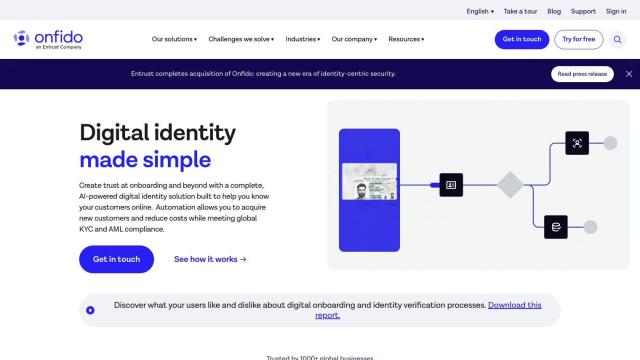
Onfido
Another option is Onfido, which offers AI-based verification to help fintech companies automate customer onboarding and meet global KYC and AML requirements. Onfido offers a Global Verification Suite, Smart Capture SDK and Atlas AI for automated identity verification. Its Compliance Suite also includes pre-built solutions for European markets, including ETSI-certified identity verification, so it's a good choice for fintech companies that need to meet a variety of regulatory requirements.

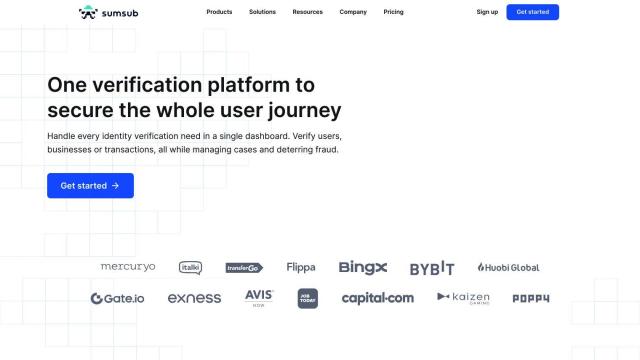
Sumsub
If you're looking for a more flexible and scalable option, check out Sumsub. The company offers a variety of tools for user, business and transaction verification, and uses machine learning algorithms to help prevent fraud and ensure regulatory compliance. It can integrate with existing systems through APIs and SDKs, and offers a customizable verification process that can be tailored to meet specific business needs. It's a good choice for fintech companies that need a more general-purpose identity verification system.

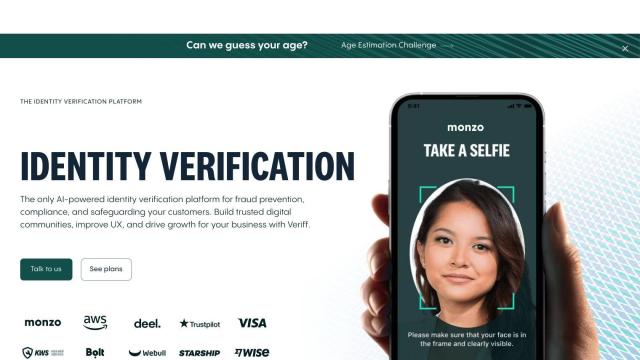
Veriff
Last, Veriff offers a suite of tools that combines AI with human verification to help fintech companies prevent fraud and meet regulatory requirements. The company offers support for more than 11,500 government-issued IDs from 230+ countries. It offers customizable pricing with volume-based discounts. Veriff is compliant with major regulatory standards, including CCPA/CPRA, GDPR, and WCAG Accessibility Guidelines, so it's a good fit for financial services and other highly regulated industries.

